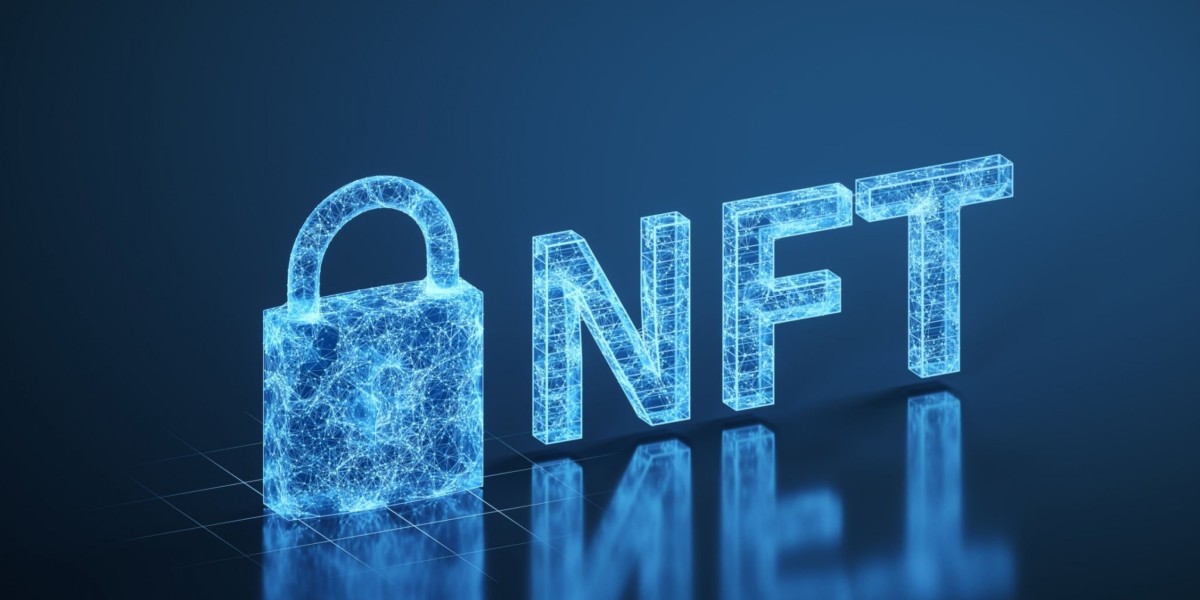The world of Non-Fungible Tokens has taken the digital space by storm, revolutionizing how we buy, sell, and trade digital assets. As NFTs continue to gain traction, entrepreneurs and businesses are seeking ways to enter this exciting market. In this blog post, we will unveil the concept of a white-label NFT marketplace and explore why it might be the ultimate solution for those looking to venture into the NFT space.
What are NFTs?
NFTs, short for Non-Fungible Tokens, are a form of digital asset that are indivisible and unique. Unlike cryptocurrencies such as Bitcoin or Ethereum, which are fungible and can be exchanged on a one-to-one basis, NFTs cannot be directly exchanged for one another based on their value. Each NFT is one-of-a-kind, making it distinct from any other token, even if they are part of the same collection or series.
Key characteristics of NFTs:
Uniqueness: Each NFT has a distinct value and digital identity. This uniqueness is ensured through blockchain technology.
Indivisibility: NFTs cannot be divided into smaller units. You either own the whole NFT or none of it.
Ownership Proof: NFTs are stored on a blockchain, providing an immutable record of ownership. This ledger ensures the authenticity and provenance of the asset.
Why are NFTs Valuable?
The value of NFTs can be attributed to several factors:
Scarcity: The scarcity of NFTs is enforced by blockchain technology, which limits the creation of new tokens. This scarcity can drive up demand and, consequently, value.
Ownership and Provenance: NFTs provide a transparent and verifiable ownership record. This is particularly significant in the digital realm, where piracy and plagiarism are common concerns.
Digital Collectibles: NFTs have enabled the creation and sale of digital collectibles, such as digital art, trading cards, and virtual real estate. Collectors are willing to pay high prices for these unique digital items.
Digital Identity: NFTs have allowed artists, creators, and content owners to establish their digital identities and monetize their work directly, without the need for intermediaries.
How do NFTs Work?
To understand how NFTs work, we need to explore the underlying technology:
Blockchain: Most NFTs are built on blockchain platforms like Ethereum. Blockchain ensures transparency and security, recording every transaction on an immutable ledger.
Smart Contracts: NFTs often use smart contracts, self-executing code on the blockchain. These contracts dictate the rules and conditions of ownership, including royalties for creators.
Interoperable Standards: NFTs adhere to standards like ERC-721 and ERC-1155, which define the structure and functionality of these tokens. These standards allow NFTs to be created, bought, sold, and traded across various platforms and marketplaces.
Marketplaces: NFTs are typically bought and sold on NFT marketplaces using cryptocurrencies. These marketplaces serve as platforms for creators to mint (create) NFTs and for buyers to purchase them.
The Growing NFT Market
NFT Market Trends
1. Diversification of NFT Categories
- NFTs have evolved beyond digital art, encompassing a wide array of categories, including music, virtual real estate, gaming items, and even virtual fashion. This diversification has broadened the appeal of NFTs to a more extensive and diverse audience.
2. Celebrity and Brand Engagement
- High-profile celebrities, musicians, athletes, and brands have embraced NFTs, collaborating with artists and launching their collections. This endorsement has brought mainstream attention to the NFT space and expanded its reach.
3. Virtual Worlds and Metaverse Integration
- NFTs have become integral to virtual worlds and the concept of the metaverse. Digital assets like virtual land and avatars are being bought and sold within these immersive environments, foreshadowing the potential of a digital future.
4. Cross-Platform Compatibility
- NFTs are becoming increasingly interoperable, thanks to standards like ERC-1155. This allows assets to be used across multiple platforms and games, increasing their utility and value.
5. Environmental Concerns and Sustainable NFTs
- The environmental impact of blockchain technology has raised concerns. Consequently, some projects are focusing on creating NFTs with lower energy consumption, such as those minted on eco-friendly blockchains.
Notable NFT Sales
1. Digital Art Auctions
- Artworks by digital artists like Beeple and CryptoPunks have fetched millions of dollars in online auctions. Beeple's "Everydays: The First 5000 Days" sold for a record-breaking $69 million in March 2021.
2. Music and Albums
- Musicians like Kings of Leon have released albums as NFTs, while artists like 3LAU have tokenized their music catalogs. These endeavors have opened up new revenue streams for the music industry.
3. Virtual Real Estate
- Virtual real estate in blockchain-based virtual worlds like Decentraland and The Sandbox has seen skyrocketing prices. Some virtual properties have sold for millions, mirroring real-world real estate markets.
4. Trading Cards and Gaming Items
- Collectible card games like NBA Top Shot have gained immense popularity, with virtual trading cards representing iconic moments in sports selling for thousands of dollars each.
5. Historic Tweets and Internet Memes
- Unique internet moments, such as the sale of Jack Dorsey's first tweet as an NFT, have demonstrated the wide-ranging potential for tokenization in the digital space.
Factors Fueling NFT Market Growth
Several factors contribute to the growth of the NFT market:
Digital Ownership: NFTs offer a new paradigm of digital ownership, allowing creators and collectors to establish verifiable ownership and provenance in the digital realm.
Monetization for Creators: NFTs empower creators to monetize their work directly, reducing the reliance on intermediaries and enabling new revenue streams.
Cultural Significance: NFTs are becoming culturally significant, sparking conversations about art, technology, and ownership in the digital age.
Blockchain Technology: The underlying blockchain technology ensures transparency, security, and trust in NFT transactions, attracting both creators and investors.
Speculation and Investment: As NFTs gain attention and value, some view them as investment opportunities, contributing to market liquidity and demand.
Benefits of White Label NFT Marketplaces
White label NFT marketplaces have emerged as a strategic solution for businesses and entrepreneurs seeking to capitalize on the booming NFT industry. These ready-made platforms offer a range of advantages that can expedite your journey into the NFT ecosystem. In this section, we will explore the key benefits of using a white label NFT marketplace for your venture.
1. Quick Entry to the NFT Market
Rapid Deployment:
- White label NFT marketplaces are pre-built, saving you substantial development time and effort. This means you can launch your NFT marketplace swiftly and be among the early movers in the market.
Market-Ready Features:
- These platforms come equipped with essential features such as wallet integration, smart contract functionality, and user-friendly interfaces, ensuring you can start attracting users and creators right away.
2. Reduced Development Costs
Cost-Efficiency:
- Developing an NFT marketplace from scratch can be prohibitively expensive. By opting for a white label solution, you significantly reduce development costs, including expenses related to hiring developers and ongoing maintenance.
Predictable Budgeting:
- With a white label NFT marketplace, you can more accurately budget for your project, as most costs are known upfront. This allows for better financial planning and risk management.
3. Established Technology and Infrastructure
Reliability:
- White label solutions are often built by experienced development teams with a track record in blockchain technology. This means you can leverage their expertise and benefit from a reliable and secure infrastructure.
Scalability:
- Many white label NFT marketplace providers offer scalable solutions. As your platform grows and attracts more users, you can easily scale up the infrastructure and capacity to accommodate increased demand.
4. Customization and Branding Opportunities
Brand Identity:
- White label NFT marketplaces can be customized to reflect your brand identity. You have the flexibility to tailor the platform's design, logo, and user interface to align with your vision and message.
Strategic Positioning:
- Personalizing the platform allows you to position your marketplace uniquely in the market. You can cater to specific niches or audiences and create a differentiated user experience.
5. Focus on Marketing and User Acquisition
Resource Allocation:
- By eliminating the need for extensive development work, white label solutions enable you to allocate more resources to marketing, user acquisition, and community building – essential aspects of a successful NFT marketplace.
Faster User Onboarding:
- With a user-friendly and feature-rich white label platform, you can attract creators and collectors more easily, fostering a vibrant ecosystem and driving adoption.
6. Technical Support and Maintenance
Expert Assistance:
- Many white label solution providers offer technical support and maintenance services. This ensures that your platform remains operational, secure, and up-to-date without requiring extensive in-house technical expertise.
7. Access to a Growing Ecosystem
Network Effects:
- Leveraging an established white label NFT marketplace can provide access to an existing user base, potentially leading to network effects that boost the success of your platform.
How to Choose the Right White Label NFT Marketplace Solution
1. Assess Your Business Needs
Define Your Goals:
- Determine your primary objectives, whether it's to create a platform for digital art, gaming items, collectibles, or a niche market. Understanding your goals will guide your choice.
Target Audience:
- Identify your target audience and their specific needs. Different niches within the NFT market may require unique features or content.
Scalability:
- Consider your long-term scalability requirements. Ensure the solution you choose can accommodate growth and increased user activity.
2. Evaluate Scalability and Security
Blockchain Technology:
- Understand the blockchain infrastructure used by the white label solution. Consider whether it aligns with your project's goals and offers the desired level of security.
Scalability Features:
- Examine the solution's ability to scale as your user base grows. Evaluate its performance under increased loads and traffic.
Security Measures:
- Prioritize security features such as encryption, authentication, and auditing capabilities to protect both user data and digital assets.
3. Examine Technical Specifications
Smart Contracts:
- Ensure the platform supports the creation and execution of customizable smart contracts. This is crucial for defining ownership rules and royalties for creators.
Interoperability:
- Check if the solution adheres to NFT standards (e.g., ERC-721, ERC-1155) for compatibility with other NFT marketplaces and blockchain ecosystems.
Wallet Integration:
- Verify that the platform seamlessly integrates with cryptocurrency wallets to facilitate easy transactions for users.
4. Analyze Pricing Models
Transparent Pricing:
- Understand the pricing structure of the white label solution, including upfront costs, transaction fees, and any ongoing maintenance fees. Ensure there are no hidden charges.
Cost Projections:
- Estimate the total cost of ownership over time to determine the long-term financial feasibility of the solution.
5. Investigate the User Experience
User Interface (UI):
- Assess the user-friendliness of the platform's interface. A well-designed and intuitive UI can attract and retain users.
Mobile Responsiveness:
- In the mobile-centric digital landscape, verify that the platform offers a responsive design for optimal mobile user experiences.
6. Review Customization Options
Branding:
- Ensure the white label solution allows for extensive branding and customization to create a unique identity for your marketplace.
Feature Customization:
- Evaluate the degree of flexibility in customizing features and functionality to meet your specific business requirements.
7. Investigate Legal and Regulatory Compliance
Legal Consultation:
- Seek legal advice to ensure compliance with local and international regulations regarding NFTs, cryptocurrencies, and digital assets.
KYC/AML:
- Confirm that the platform supports Know Your Customer (KYC) and Anti-Money Laundering (AML) processes, which may be legally required in your jurisdiction.
8. Assess Technical Support and Maintenance
Support Services:
- Inquire about the technical support and maintenance services offered by the solution provider. Quick resolution of technical issues is crucial for operational continuity.
Updates and Upgrades:
- Ensure the platform receives regular updates and upgrades to stay current with evolving blockchain technology and security standards.
9. Seek References and Case Studies
Client References:
- Request references from the white label solution provider and speak with businesses or entrepreneurs who have used their platform.
Case Studies:
- Analyze case studies of successful NFT marketplaces built using the solution to understand real-world outcomes.
10. Make an Informed Decision
Compare Options:
- Compare multiple white label NFT marketplace solutions based on the criteria above. Consider creating a weighted scoring system to objectively assess each option.
Due Diligence:
- Conduct thorough due diligence, including reading user reviews, seeking legal counsel, and evaluating the provider's reputation and track record.
Conclusion
The future of NFTs and white label marketplaces is marked by innovation, growth, and increasing integration into various aspects of our digital lives. NFTs are poised to disrupt industries, redefine ownership, and create novel opportunities for creators and collectors alike. White label marketplaces will continue to serve as the gateway for aspiring entrepreneurs to enter this dynamic ecosystem, providing the tools and resources needed to thrive in the evolving world of NFTs. As technology advances and user adoption increases, the journey into the metaverse and the realm of digital ownership promises to be an exciting and transformative one.








